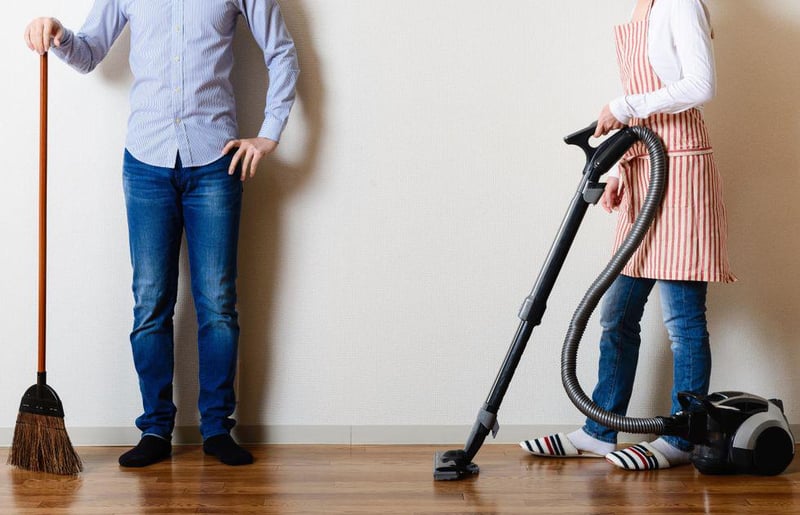Please call us to schedule your appointment or if you need us to help you decide which vaccinations you need.
(315) 848-3784
NEW! Access your prescriptions online. Click "Sign Up Today!" to create a new account.
Download our NEW Mobile App!
Get Healthy!

- Steven Reinberg
- Posted November 23, 2021
Housework Might Boost Your Body & Mind
Seniors, looking for a way to stay mentally quick and physically strong? Start scrubbing.
Researchers from Singapore say housework may be a key to keeping your brain sharp as you age.
Their new study found that in older adults, cleaning house was tied to a better memory and attention span, and stronger legs, which helps prevent falls.
"Health promotion messaging on staying active should not just be about recreational or non-occupation physical activities," said study co-author Shiou-Liang Wee, an associate professor of health and social sciences at the Singapore Institute of Technology.
"Housework is a purposeful activity performed by many older adults" and represents a significant share of their self-reported moderate-to-vigorous physical activity, he said. As such, it's a key complement to recreational physical activity.
The researchers noted that their study doesn't prove housework causes sharper thinking or better balance, only that there appears to be a link.
For the study, Wee's team looked at nearly 500 healthy Singaporeans between 21 and 90 years of age.
The investigators used walking and the ability to get up from a chair as an indication of physical ability, and tests of short and delayed memory, language, attention span and visuospatial ability to gauge mental ability. (Visuospatial ability is a key to depth perception and moving around without bumping into objects.)
Participants were also asked about the household chores they did and other types of physical activity.
For Wee's group, light housework included washing dishes, dusting, making the bed, hanging out the wash, ironing, tidying up and cooking. Heavy housework included window cleaning, changing the bed, vacuuming, mopping and chores involving sawing, painting and repairing.
Among younger participants, 36% said they engaged in enough physical activity to meet the goal researchers set as beneficial, as did 48% of older participants.
But 61% of younger and 66% of older participants met this target exclusively through housework, the study revealed.
After accounting for other types of regular physical activity, the researchers found that housework was tied with sharper mental abilities and better physical capacity -- but only among the older participants.
Scores on tests of mental ability were as much as 8% higher among those who did lots of housework, compared with those who did little, Lee's team found. Housework was also tied with higher attention scores.
And among older participants, balance and the time it took to stand up from sitting were better for those who did lots of housework than for those who didn't.
Dr. Maria Torroella Carney, chief of geriatric and palliative medicine at Northwell Health in New Hyde Park, N.Y., noted that exercise benefits your brain, and housework is exercise that also involves mental activity.
"Exercise is extremely important for aging for both physical and cognitive function," she said. "We know this from past studies, but we don't necessarily appreciate how much housework is a physical activity that takes planning logistics to implement. Exercise and planning are incredibly important for both physical and cognitive health."
Torroella Carney said physical activity increases blood circulation to your muscles and your brain, which helps mental function.
Housework can be an important part of your exercise routine, she said.
"Housework is physical but also requires detailed thought processes to complete," Torroella Carney said. "It's a task you've got to plan for. You've got to use devices, you've got to use equipment. There's planning involved, so there's cognitive exercise along with physical exercise."
Her advice: Get moving.
"It's never too late to start exercising, we know that from other studies, not just this one -- it's never too late," Torroella Carney said.
The findings were published online Nov. 22 in the journal BMJ Open.
More information
There's more about brain health at the Alzheimer's Association.
SOURCES: Shiou-Liang Wee, PhD, associate professor, health and social sciences, Singapore Institute of Technology; Maria Torroella Carney, MD, chief, division of geriatric and palliative medicine, Northwell Health, New Hyde Park, N.Y.; BMJ Open, Nov. 22, 2021, online







